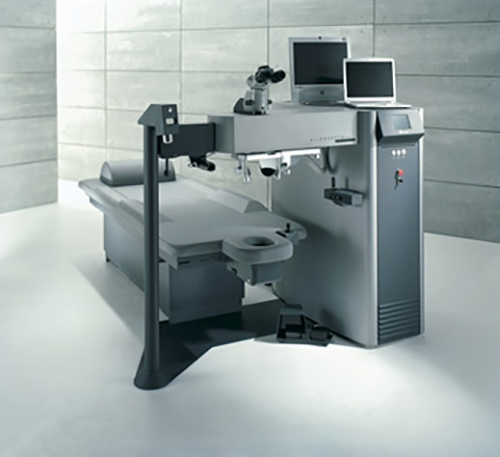ABOUT LASIK EYE SURGERY IN DENVER, CO
LASIK Surgery is Safe and Effective
LASIK (“laser-assisted in situ keratomileusis) is laser eye surgery that permanently changes the shape of the cornea (the clear window on the front of the eye) in order to improve vision and reduce a person’s dependency on glasses or contact lenses. LASIK has now been safely performed, with stable and consistent results, as an FDA-approved surgery for over 15 years. LASIK surgery is most often performed on people who are disappointed with their glasses or contact lenses. The surgery corrects nearsightedness, farsightedness, and astigmatism.

How LASIK Works
Anesthesia involves eye drops that numb the surface of the eye. The procedure is done while you are awake, but patients receive a mild sedative to help relax. Typically, LASIK surgery is done on both eyes during the same procedure. LASIK involves creating a protective flap of corneal tissue which is then lifted so that the excimer laser can reshape the cornea underneath. The amount of tissue the laser will remove is accurately calculated ahead of time and depends upon the level of refractive error. The surgeon then ensures the flap is safely repositioned without the need for sutures or tissue glue. The cornea and eyelid will naturally hold the flap in place, and the patient returns home to rest. Most patients can see clearly enough to return to work the next day.
Experience the difference.
Is LASIK for Patients with Presbyopia?
The Denver Ophthalmology Center
Call 303-991-9662 or request an appointment today at The Denver Ophthalmology Center!
The Denver Ophthalmology Center (The DOC)
8381 Southpark Ln
Littleton, CO 80120
Phone:
(303) 991-9662
Fax:
303-991-9647
